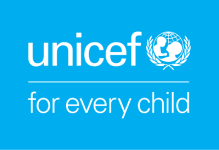What We Mean
Life is Live
Mental health care stands as one of the most significant topics in today’s world. Young people, in the process of exploring fundamental hypotheses about themselves, others, and the world, often struggle with their first disappointments, hurt, and painful experiences, lacking sufficient life experience as a resource to cope with such challenges effectively.
These struggles are exacerbated by the digital era. Despite its many wonders, digital times tend to make young people feel more isolated and disconnected than older generations have ever experienced.
As EXIT organization’s target audience has always been young individuals, we actively monitor and recognize their challenges. For years, EXIT has been engaged in the subject of mental health and psychological well-being, both within our organization and in collaboration with Center “SRCE” (“Heart”) to assist festival attendees. Last year, we took a step further – EXIT and UNICEF, with the support of the marketing agency McCann Belgrade, have launched a campaign to highlight the immense importance of interaction in person for preserving mental health, particularly in the digital age.
The first phase of the campaign, titled “Life Is Live,” focuses on digital addiction, urgently drawing attention to the alarming extent it has reached.
“A true story lasts a lifetime” is the slogan for the initial phase of the campaign. Its goal is to underscore those irreplaceable moments spent with loved ones and alone, which make life authentic and real and can only be experienced live.
The very essence of music festivals is to bring a genuine, authentic, and powerful human experience at the highest level. Considering the potential and scale of just one major festival, it becomes clear what a significant impact it can have on the long-term well-being of hundreds of thousands of individuals and even entire generations. We recognize, nurture, and embrace this as a core value.
The campaign also takes a deeper dive into the paradox of our connected yet lonely lives, even as we communicate daily through digital platforms. The internet and social media have enabled constant communication but have also led to significant alienation.
On the other hand, the very essence of music festivals is to bring a genuine, authentic, and powerful human experience at the highest level. Considering the potential and scale of just one major festival, it becomes clear what a significant impact it can have on the long-term well-being of hundreds of thousands of individuals and even entire generations. We recognize, nurture, and embrace this as a core value.
The campaign primarily targets the youth but also anyone interested in mental health, particularly regarding digital addiction. It’s becoming increasingly clear that these two topics can no longer be separated, and discussions about the mental health of the youth must acknowledge the reality of the virtual worlds in which we also live.
Through this collaboration, EXIT and UNICEF aim to show young people that they are recognized and supported in establishing a balance in mental health and in the essential task of finding equilibrium between virtual and real life.
The campaign’s importance has also been recognised by the European festival association YOUROPE, which has joined in an international campaign to raise awareness concerning the importance of youth mental health and the positive impact that festivals and live events have in this regard.

